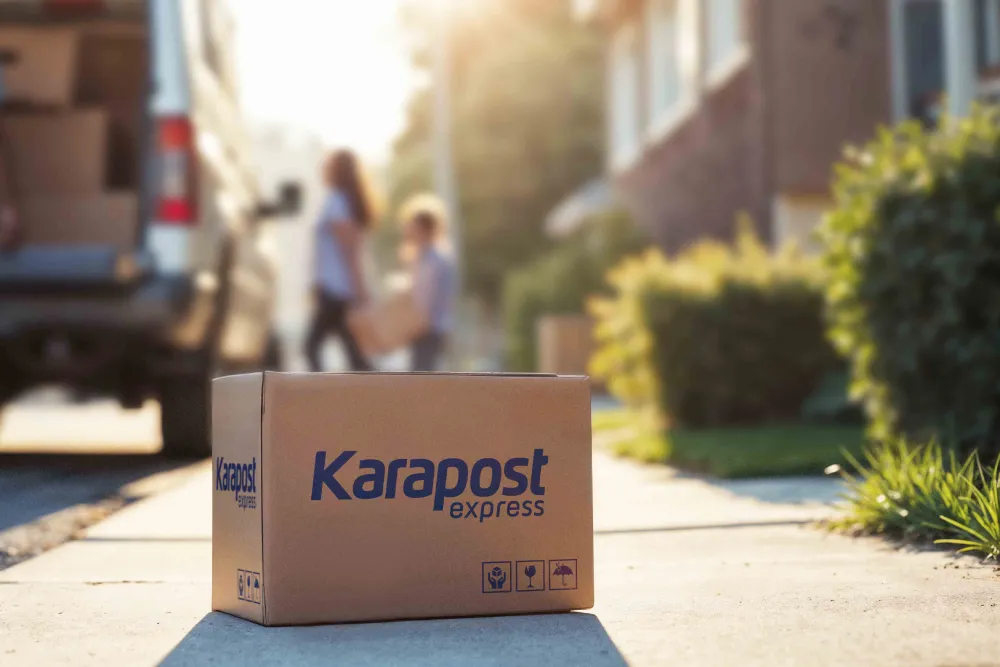Documents required and import tariffs for goods from Europe
Karapost, with extensive experience in international postal services, offers professional import services from Europe to Iran. Our services include:
- Consulting on selecting the appropriate shipping route (air, sea, or combined)
- Coordinating customs processes from the start of the shipment
- Transporting goods from the origin to the final destination in Iran
- Fast and specialized customs clearance in Iran's ports
- Handling damage claims in cases of loss or delay
🔢 Step-by-Step Import Guide from Europe
This guide explores all aspects of importing from Europe, including procedural steps, costs, customs regulations, and the advantages of utilizing Karapost's professional services.
1. Selecting the Product and Supplier
The first step involves determining the type of product you wish to import, selecting a brand, and choosing a reliable European supplier. The best ways to find suppliers include attending international trade fairs, searching on B2B platforms (such as Europages or Alibaba Europe), or using services offered by companies specializing in European import consultancy.
2. Reviewing Iran's Customs Requirements
For every product, you must determine its exact tariff code (HS Code) within Iran's customs system. This code helps identify key aspects such as:
- The type and amount of duties and entry fees
- Required documents for customs clearance
- Any potential restrictions or prohibitions
3. Order Registration and Contract Signing
At this stage, a purchase contract should be prepared, clearly stating the price, payment terms, delivery timeline, shipping conditions, and packaging standards. Proper contract terms protect both parties and outline all logistical and legal obligations for a smooth transaction.
4. Shipping Goods
Imports from Europe are typically carried out via one of three primary methods:
- Air Freight: Fastest but most expensive, recommended for lightweight or urgent cargo.
- Sea Freight (from ports in Germany, Italy, the Netherlands): A cost-effective choice for bulky shipments.
- Combined (Multimodal) Shipping: Offers flexibility and can be customized depending on cargo type and optimal routing.
5. Customs Clearance in Iran
Once the goods arrive in Iran, the customs clearance process begins. This includes obtaining any necessary permits, product assessment, paying customs duties, and releasing the goods. Karapost can efficiently handle this entire process, offering professional and comprehensive clearance services.
💲 Import Tariffs from Europe
Import tariffs from Europe vary depending on the type of goods. For example:
- Cosmetics: About 26% to 36%
- Auto Parts: Between 15% and 25%
- Clothing: Around 30%
- Machinery: 5% to 15% (lower rates may apply if the item qualifies for industrial exemptions)
To calculate the exact fee for your product, it's essential to obtain the correct HS Code with the help of customs consultants and enter this information when registering your order in the EPL system. Accurate HS Code classification ensures you determine the right tariffs, avoid delays, and meet all regulatory requirements.
📋 Required Documents for Importing from Europe
- Official Proforma Invoice from the European seller
- Order registration in the Integrated Trade System
- Certificate of Origin (CO)
- Bill of Lading (Air or Sea)
- International Insurance Policy
- Final Invoice (Invoice)
- Packing List
These documents are essential for a smooth customs process and timely delivery of your imported goods.
📈 High-Demand Goods for Import from Europe
| Category | Example Products |
|---|---|
| Auto Parts | Suspension systems, brakes, ECUs, engine parts |
| Cosmetics | Brands like L'Oréal, Nivea, Bioderma |
| Medical Equipment | Laboratory devices, specialty pharmaceuticals |
| Industrial Machinery | Manufacturing equipment, CNC tools, smart systems |
| Clothing and Footwear | Italian, Spanish, and French brands |
| Food Items | Chocolate, cheese, olive oil, coffee, spices |
🌟 Advantages of Importing from Europe
Importing goods from Europe offers several significant benefits for Iranian businesses:
- Quality Assurance: European goods are produced under some of the strictest quality standards in the world, ensuring consistently high product quality and reliability.
- Brand Reputation: Many well-known European brands hold strong recognition in Iran, particularly in sectors such as automotive, home appliances, pharmaceuticals, and fashion.
- Transparent and Enforceable Contracts: European suppliers operate within well-established legal frameworks, which help ensure that business contracts are clear, traceable, and reliable.
- Fast and Diverse Transportation Options: Despite international sanctions, various shipping routes—including postal, cargo, and sea freight—remain active and efficient from Europe to Iran.
- Access to Unique and Specialty Products: Certain high-tech machinery, medical devices, or specialty materials are produced exclusively in Europe, giving importers access to rare and in-demand goods.
These advantages make Europe a preferred source for many importers seeking value, trust, and innovation in their supply chains.
Accurate HS Code classification ensures you determine the right tariffs, avoid delays, and meet all regulatory requirements.
⚠️ Challenges in Importing from Europe
Importing goods from Europe can come with several challenges that importers should be aware of:
- Compliance: Some products must be tested and approved according to Iranian standards, such as FDA, CE, or ISO certifications.
- Sanctions and Money Transfer: Due to international sanctions, transferring funds can be complex. Using methods like remittance through licensed exchanges or intermediary countries is often recommended.
- Specialized Packaging Requirements: Certain goods, especially sensitive equipment, must be packed following international shipping regulations to ensure safe transport and compliance.
